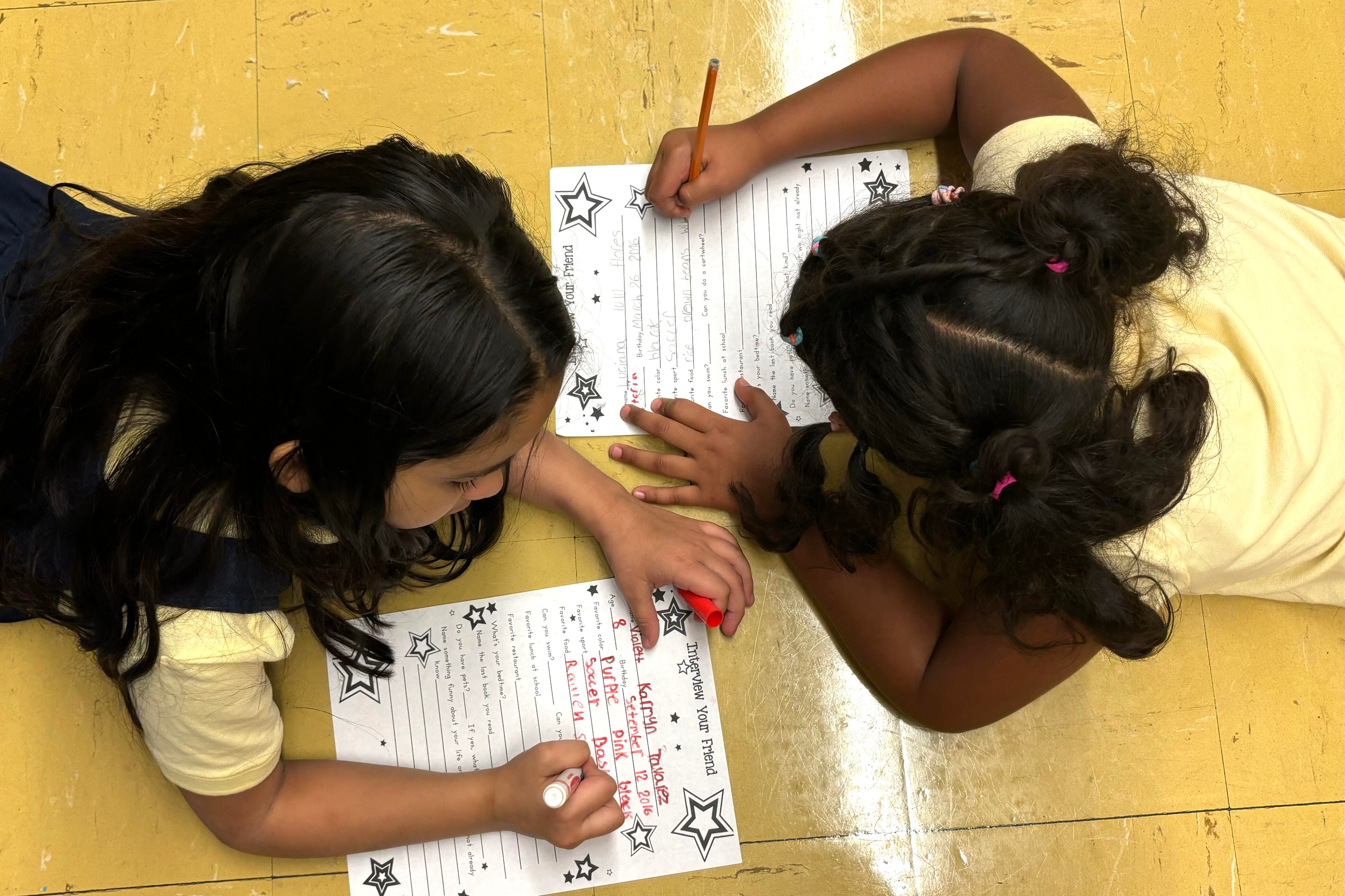One Manhattan neighborhood that’s recently welcomed more migrant students is reeling from a loss of funding for after-school programs.
While the state awarded nearly $39 million in grants to 74 New York City organizations that provide free or low-cost after-school programs in high needs areas, a program called Fresh Youth Initiatives in Washington Heights lost out.
The grants, announced by Gov. Kathy Hochul on Thursday, are part of a larger $100 million effort to expand after-school initiatives across the state and restructure funding for such programs, officials said. Under the changes, several organizations that the state had previously funded lost their grants. Other groups were tapped to serve particular neighborhoods.
Washington Heights, a largely immigrant neighborhood at the tip of Manhattan, was particularly hard hit.
Fresh Youth Initiatives applied for a state grant to provide several local schools with reading intervention, sports, civics, mental health services, and other programs. The organization got positive feedback on its application, but ultimately was not funded, said Catherine Shugrue dos Santos, the organization’s executive director.
Now, not only is Fresh Youth unable to offer the additional 220 seats it was aiming for, it must cut 200 seats from its existing programs, Shugrue dos Santos said. And those seats are not being picked up by other organizations.
“It’s really heartbreaking,” she said. “We’ve had parents calling and sobbing and raging because the kids need the services.” Her organization, which employs many graduates of the program who live in the neighborhood, had to lay off a third of its staff, she said.
Uptown Stories, the one organization funded in Washington Heights and Inwood‘s District 6, is planning to use its $450,000 grant to offer up to 54 seats across three schools, it’s program director said. That translates to $8,300 per seat.
The state’s Office of Children and Family Services is “committed to expanding access to affordable, high-quality after-school programming for families across New York,” spokesperson Karen Male said in a statement. The grants were awarded “through an incredibly competitive bidding process.”
Fresh Youth Initiatives had previously been funded through two separate state funding streams, Empire State After-School Programs and Advantage After School Programs. The state, however, consolidated the grant programs this year into one called Learning and Enrichment Afterschool Program Supports, or LEAPS, requiring providers to reapply. Organizations in other parts of the city also found themselves without funding through the new program.
In response, the city, in collaboration with the state’s Office of Children and Family Services, made a one-time commitment to plug some of the gaps for organizations that lost funding in the restructuring, including allowing schools to use it to offer their own programs. That funding is reportedly prioritizing programs in Brooklyn and the Bronx, leaving Manhattan behind.
A principal at one of the schools Fresh Youth had worked with is using her own school’s budget for a shortened after-school homework help session, but that funding will run out in January, Shugrue dos Santos said.
“I don’t know what these families are going to do, because they’re going to have to choose between having their kids go home and not be well-supervised, or having to change their work schedule and lose all their money and maybe not pay their rent,” she said. “These are untenable choices for families.”
The loss in seats came as the city’s Department of Youth and Community Development recently cut some after-school programs.
In the meantime, Shugrue dos Santos launched a petition to support after-school programs and she’s echoing a state lawmaker’s call for universal after-school programs in the five boroughs. She hopes the city can potentially step up in other ways to help.
City officials from the Youth and Community Development department did not immediately respond to a request for comment.
Dorkys Ramos, the program director at Uptown Stories, said her organization was hoping to offer more seats but was constrained by the classroom capacity allowed under their license.
Ramos said Uptown Stories — which offers writing workshops and compiles student work into an anthology sold in local businesses — is excited to expand into more schools and that the programs will make it easier for families given the area’s child care needs.
“We’re really excited to do this and have this be the stepping stone in providing more support for our neighborhood’s children,” Ramos said.
The organization will start its new programs on Monday.
State officials said that families who lack after-school programs may be eligible for the state’s Child Care Assistance Program to cover some or all of their child care costs. (NYC families can learn about the application process through a video tutorial, and apply through the MyCity portal). Additionally, the New York City Child Care Resource and Referral Consortium has a parent referral line to help eligible families.
Amy Zimmer is the bureau chief for Chalkbeat New York. Contact Amy at azimmer@chalkbeat.org.






